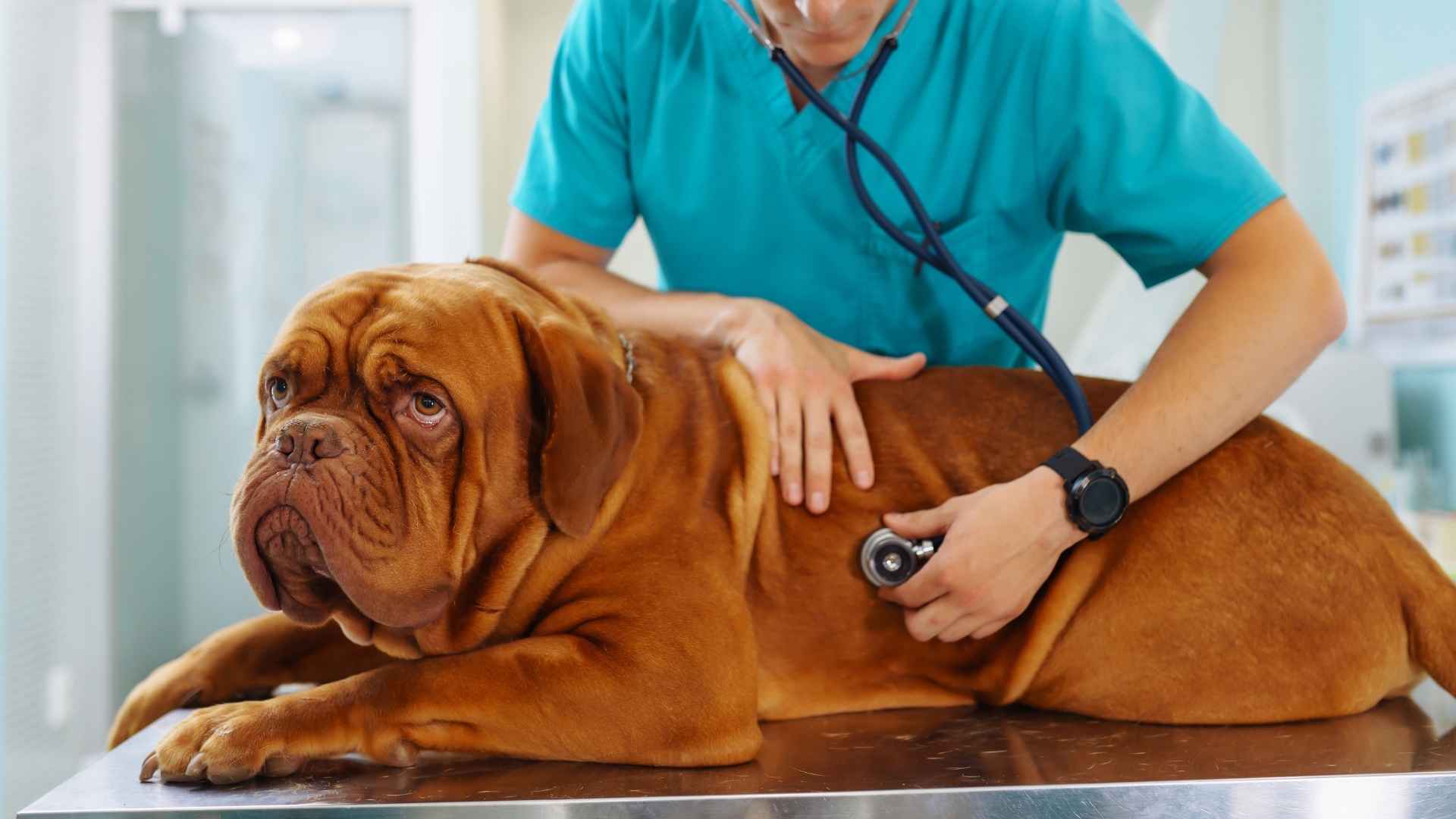Bringing a dog into your home is a joyful experience, but it also comes with responsibility—especially when it comes to their health. Some dogs are naturally more prone to illnesses due to genetics, size, or specific breed characteristics. While all dogs need proper care, certain breeds require extra attention to prevent common health issues.
From chronic conditions to hereditary diseases, being aware of potential risks can help pet owners provide the best possible care for their furry companions. Understanding which breeds are more susceptible to health problems allows you to take proactive steps—whether through regular vet check-ups, a specialized diet, or a well-planned exercise routine.
While no dog is completely immune to illness, early awareness and preventative care can make a significant difference. In this guide, we’ll explore dog breeds that are more prone to illness, their common health concerns, and expert tips to keep them happy and healthy for years to come.
Prone to Illness Dog Breeds
1. Bulldog

Bulldogs are beloved for their wrinkled faces and stocky builds, but their unique appearance comes with significant health challenges. Due to their brachycephalic (flat-faced) skull structure, they often suffer from breathing difficulties, making even mild exercise a struggle.
This condition, known as Brachycephalic Obstructive Airway Syndrome (BOAS), can cause heavy snoring, overheating, and severe respiratory distress.
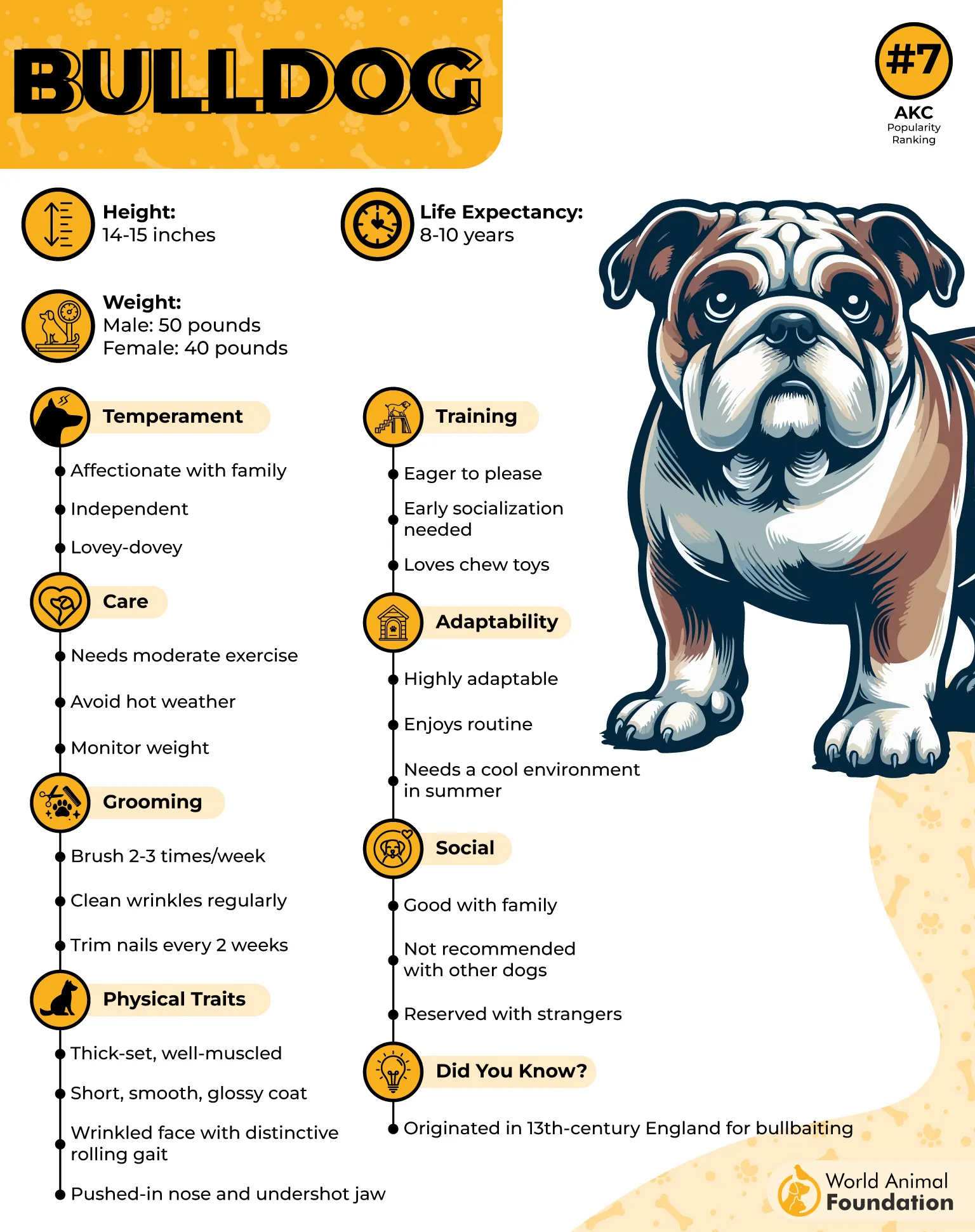
Bulldogs are also highly susceptible to hip dysplasia and joint issues, often leading to arthritis at an early age. Their heavy-set frames put extra strain on their joints, making movement difficult. A balanced diet and moderate exercise can help prevent obesity, which worsens these conditions.
Their skin folds, while adorable, create the perfect environment for bacterial and yeast infections. Bulldogs can develop painful skin irritations, bad odors, and chronic dermatitis without regular cleaning. Owners must frequently wipe between these folds and monitor for signs of infection to keep their pets comfortable.
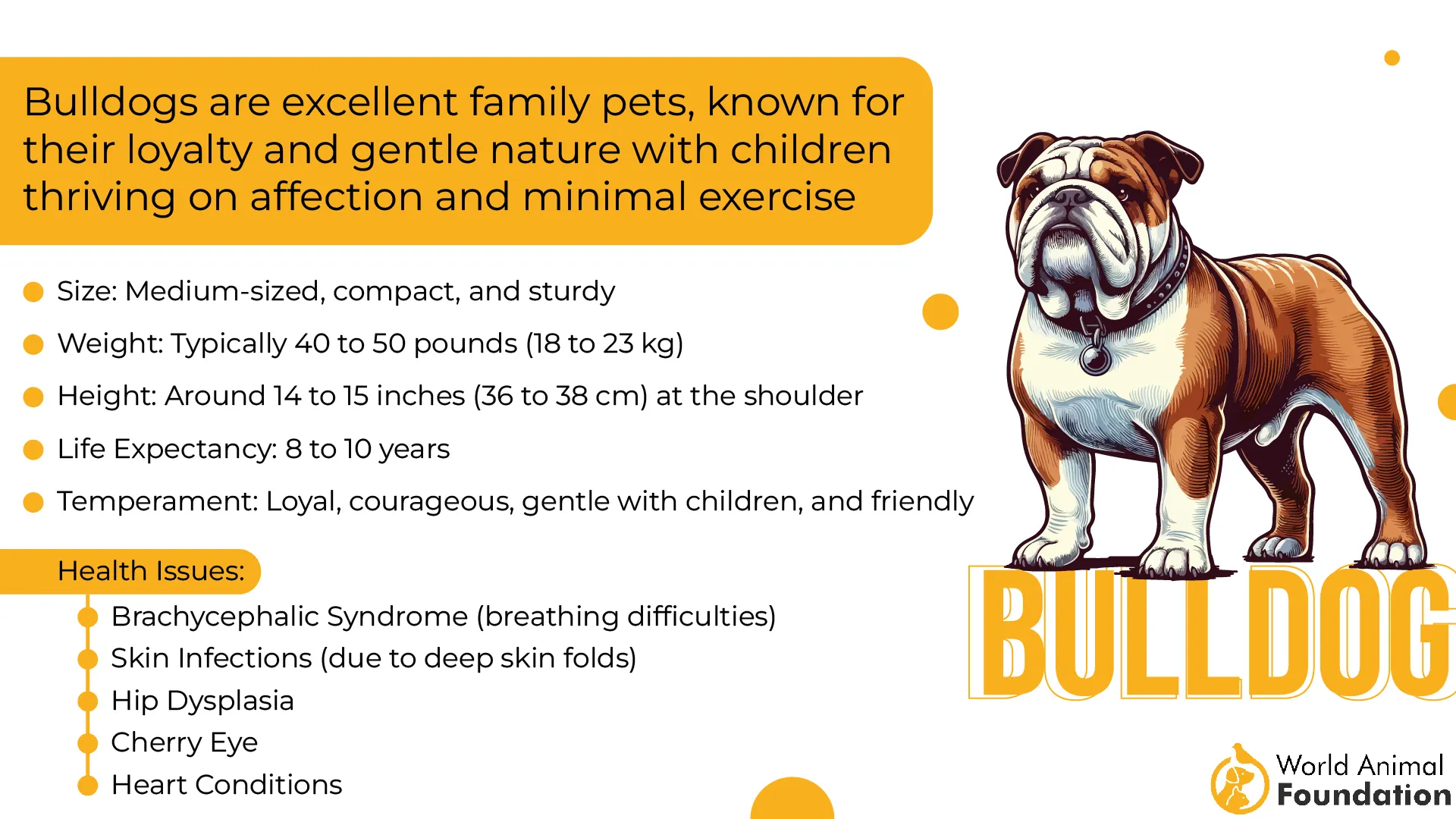
PDSA states bulldogs have broad shoulders compared to their smaller hindquarters and pelvic bones, making natural birth difficult. As a result, they often require a cesarean section to deliver their puppies safely.
Despite their health challenges, Bulldogs remain affectionate, loyal companions. They can live happy lives with proper care, vet visits, and a well-maintained lifestyle. Potential owners should be prepared for the extra attention and medical care this lovable breed requires.
2. Pug

Pugs are among the most popular dog breeds, loved for their playful personalities and affectionate nature. However, their brachycephalic (flat-faced) skull structure makes them prone to severe respiratory problems.
They often suffer from brachycephalic airway syndrome, which causes difficulty breathing, excessive snoring, and overheating, especially in warm weather.
As a brachycephalic breed, Pugs are also at high risk for skin infections due to their deep facial wrinkles. These folds trap moisture and bacteria, leading to irritation, bad odors, and chronic dermatitis. Regular cleaning of their skin folds is essential to prevent discomfort and infection.
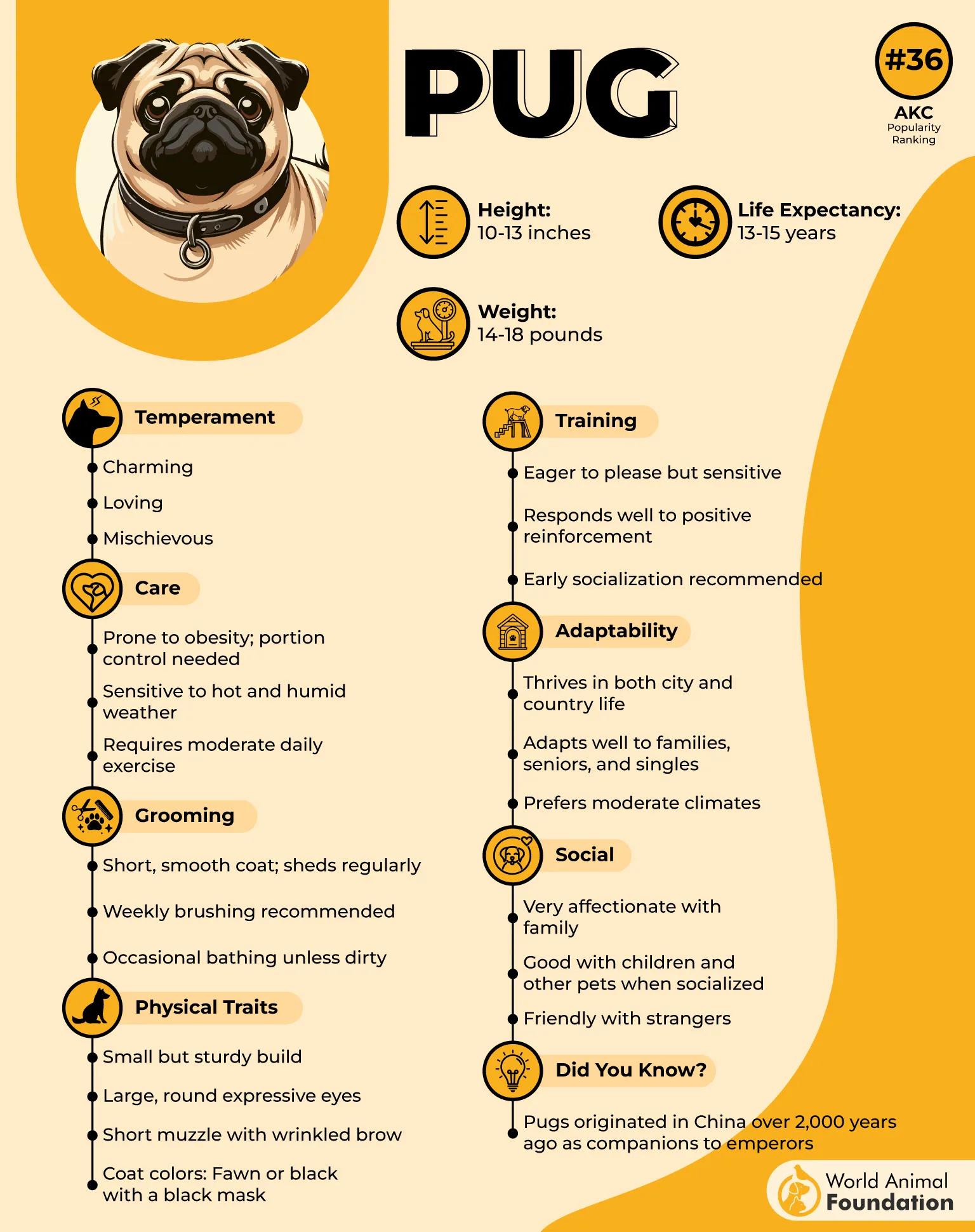
Pugs frequently experience joint problems, particularly hip dysplasia and patellar luxation (dislocated kneecap). Their compact, stocky build strains their joints, making movement difficult. Controlled exercise and physical therapy can help maintain mobility and prevent early arthritis.
Dental health is another concern, as Pugs are prone to gum disease and tooth decay due to their small, crowded mouths. Poor dental care can lead to infections affecting the dog’s body beyond the teeth. Regular brushing and professional cleanings are necessary for maintaining oral health.
Given their numerous dog health issues, investing in pet insurance plans can help owners manage medical costs and ensure their Pug receives the best care. These incredible animals can still lead happy and fulfilling lives with proper attention, a healthy diet, and regular vet visits.
3. Great Dane

Great Danes are among the most majestic large breeds, known for their towering height and gentle temperament. However, their massive size makes them prone to serious health issues, particularly hip and elbow dysplasia. These joint conditions cause pain and mobility issues, often worsening as the dog ages.
One of the most life-threatening concerns for Great Danes is bloat (gastric torsion), a condition where the stomach twists and cuts off blood flow. This can lead to sudden dog collapses and requires immediate veterinary attention. Feeding smaller, frequent meals and avoiding exercise right after eating can help reduce the risk.
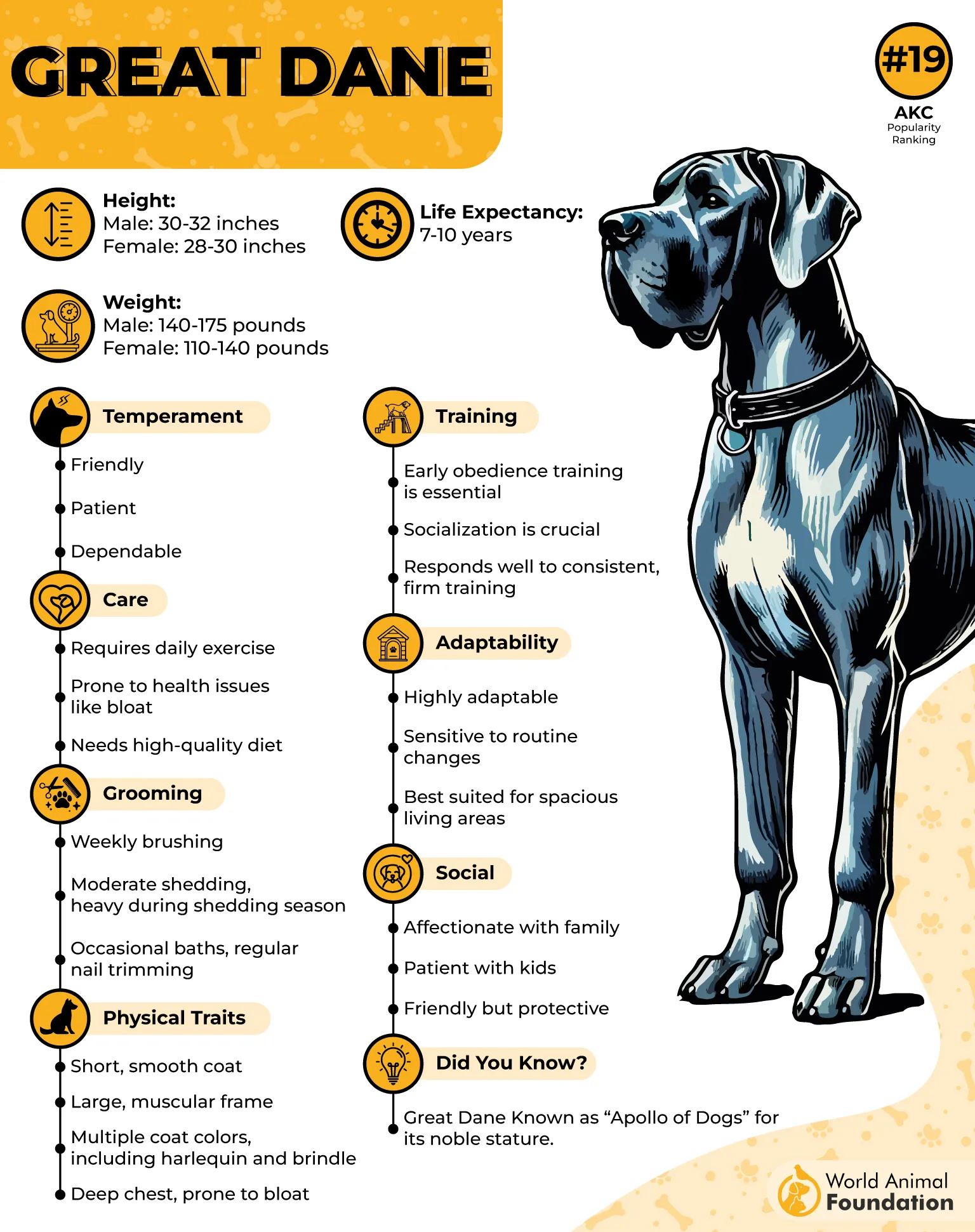
Heart disease, particularly dilated cardiomyopathy (DCM), is another major concern in Great Danes. This condition weakens the heart muscle, leading to lethargy and breathing difficulties. Regular vet check-ups and proper nutrition with heart-healthy supplements can help manage this risk.
Older dogs are at high risk of broken bones due to their long frames and long limbs. Their bones and joints weaken with age, making proper care and veterinary medicine essential for preventing fractures and arthritis.
Recognized by the American Kennel Club, Great Danes remain loyal, affectionate companions. They can enjoy a comfortable and happy life with routine veterinary care, a proper diet plan, and a safe exercise routine.
4. Cavalier King Charles Spaniel

The Cavalier King Charles Spaniel is one of the most beloved purebred dogs, known for its affectionate nature and elegant appearance. However, like many toy breeds, they are prone to several breed-related health problems, requiring attentive care and regular veterinary check-ups.
As PetMD states, one of the most serious conditions affecting this breed is mitral valve disease (MVD), a progressive heart condition that can lead to heart failure. This disease is particularly common in Cavaliers, often developing at a young age and worsening over time. Early detection and proper treatment are crucial for managing symptoms.
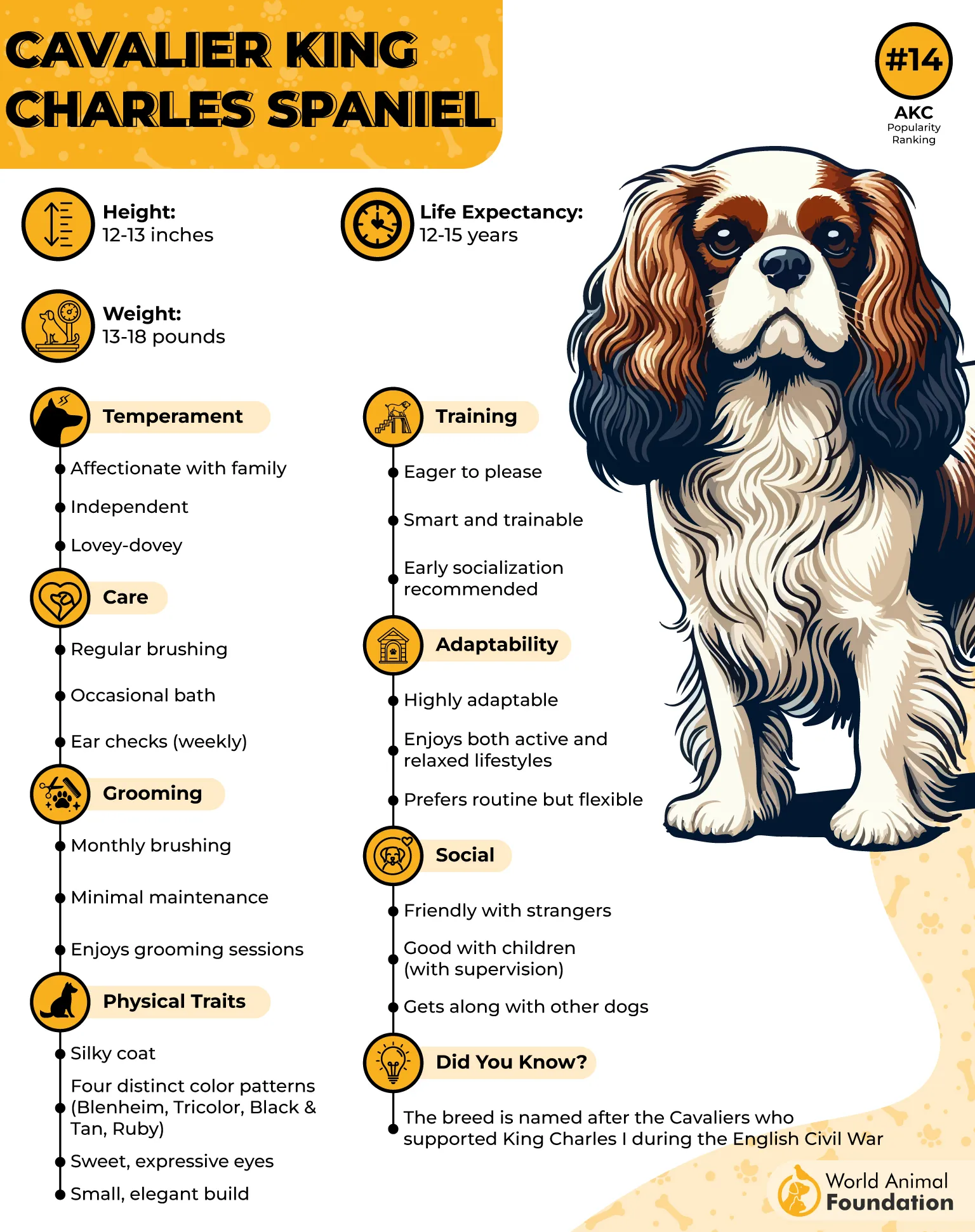
Cavaliers are also at risk for blood vessel birth defects, which can cause circulation issues and impact overall health. Regular heart screenings and monitoring for signs of fatigue or difficulty breathing can help detect cardiovascular problems early.
Eye disorders, including collie eye anomalies, are another concern for this breed. This genetic condition affects vision and, in severe cases, can lead to blindness. Routine eye exams can help identify and manage potential vision problems before they progress.
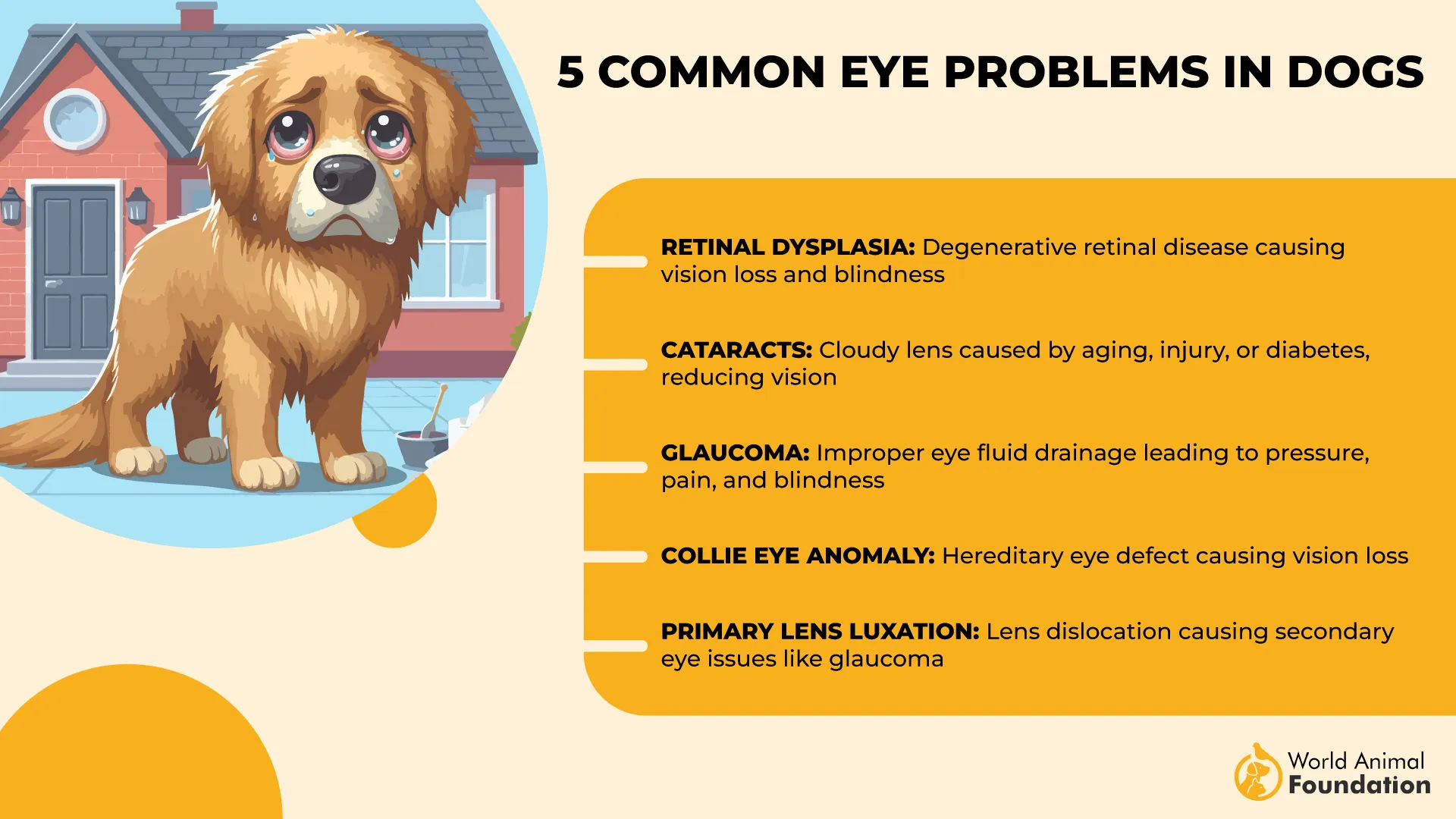
Skin and coat health is also important, as Cavaliers may experience hair loss due to allergies, hormonal imbalances, or genetic factors. A well-balanced diet and proper grooming can help maintain a healthy coat and reduce skin issues.
Despite these health risks, Cavaliers make loving and devoted companions. They can lead a happy and fulfilling life with regular vet visits, careful monitoring of their breed-related health problems, and a well-maintained lifestyle.
5. Cocker Spaniel

Cocker Spaniels are affectionate and energetic small dogs, but like many other dog breeds, they come with breed-specific concerns that require careful attention. Their genetics make them prone to various health conditions, so owners must stay proactive in their care.
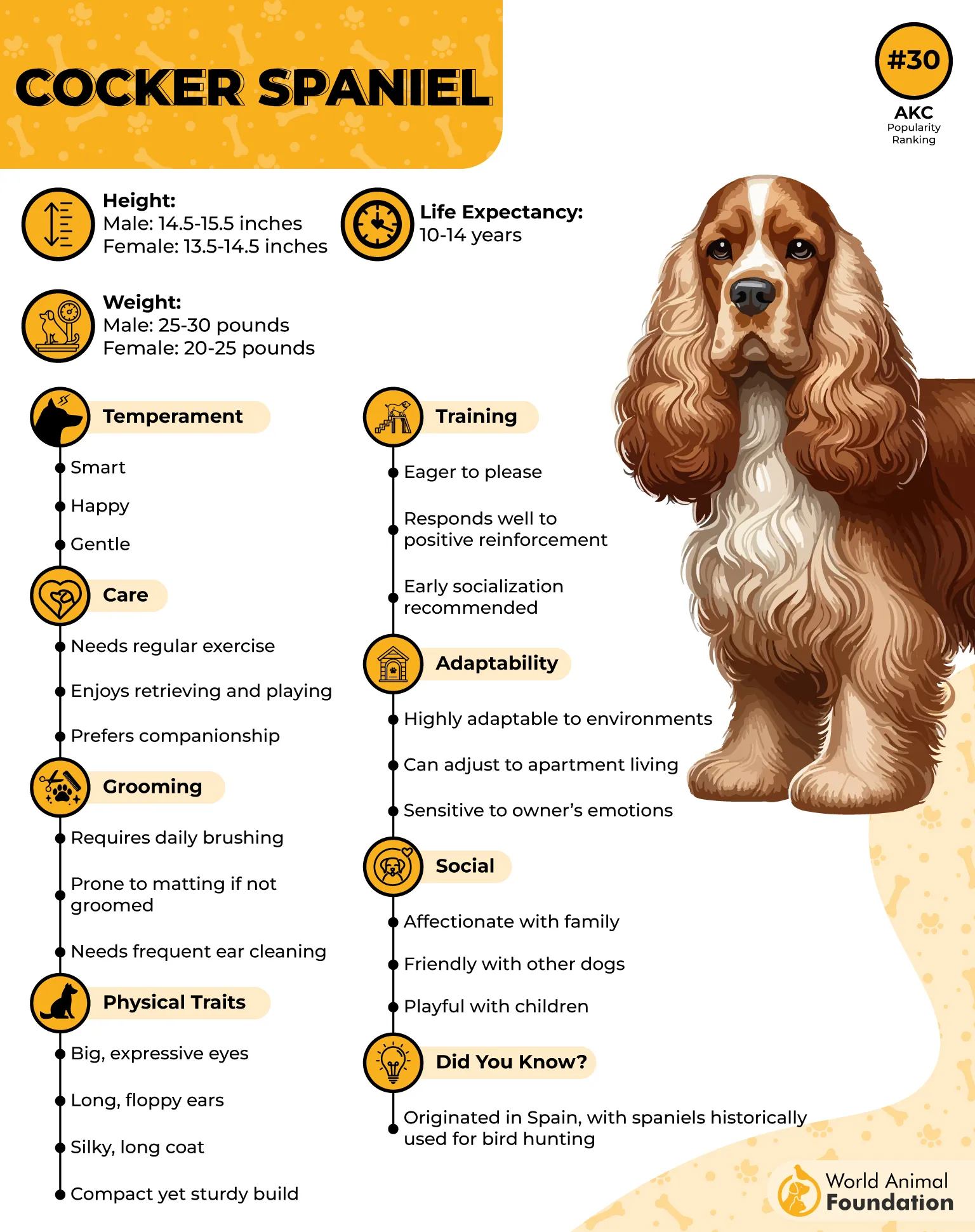
One of the most common issues in Cocker Spaniels is progressive retinal atrophy (PRA), a genetic disorder that leads to gradual vision loss and, in severe cases, blindness. Since symptoms develop over time, routine eye check-ups can help detect problems early and slow progression.
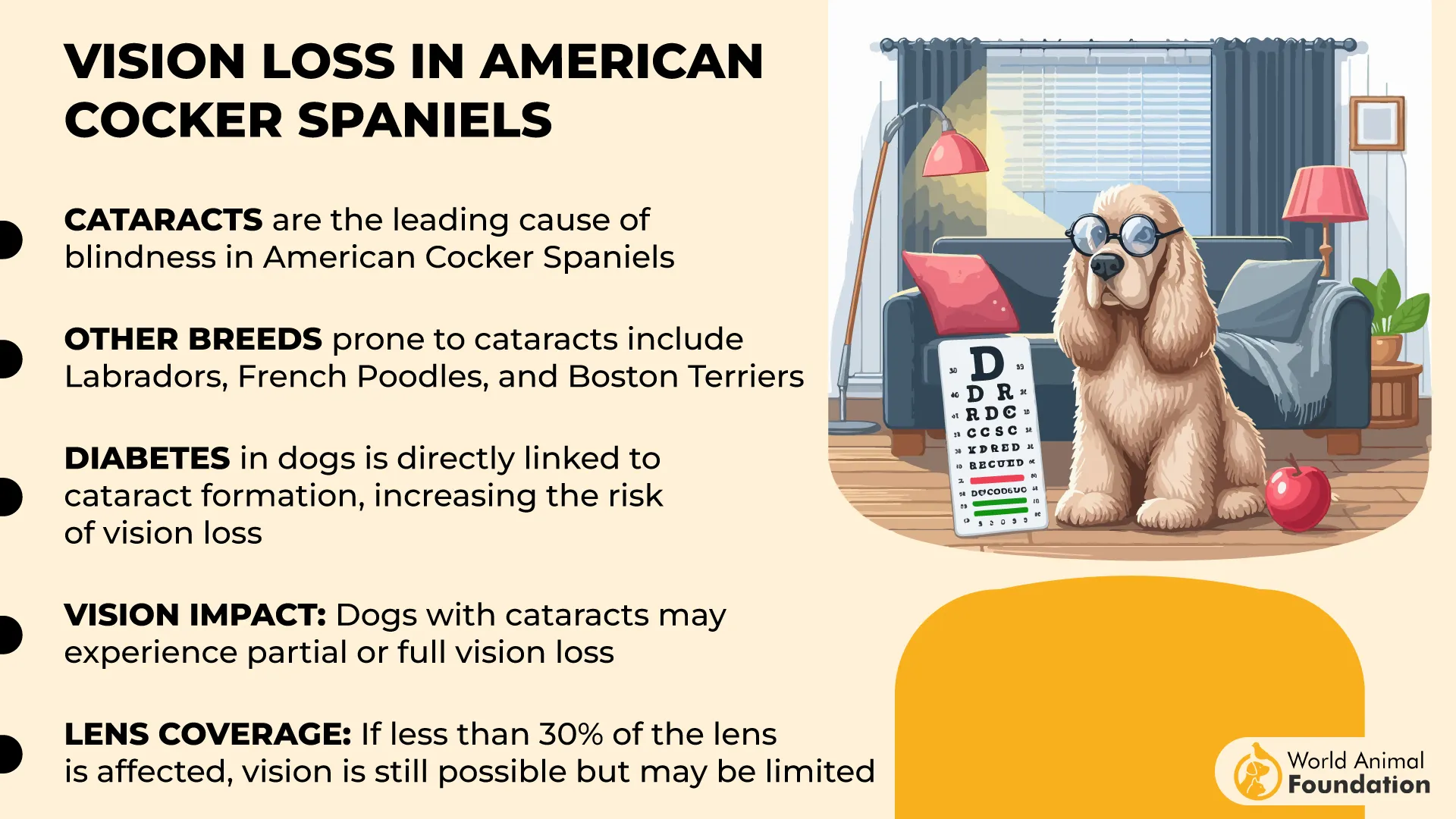
Their signature floppy ears make them highly susceptible to ear infections, as moisture and bacteria can easily become trapped. Owners should clean their ears regularly to help prevent ear infections and avoid chronic discomfort or hearing loss.
Purina states that Cocker Spaniels also face a higher risk of intervertebral disc disease (IVDD), which affects the spine and can cause pain, mobility issues, or even paralysis. Maintaining a healthy diet and ensuring regular exercise without excessive strain can help reduce the likelihood of spinal problems.
Many owners opt for pet insurance to help manage potential medical costs due to their predisposition to various genetic diseases. Regular vet visits, a balanced diet, and attentive care can help Cocker Spaniels live a happy and healthy life despite their health conditions.
6. French Bulldog

French Bulldogs are one of the most beloved companion dogs, but their unique physical traits make them highly susceptible to various health problems. Their flat-faced structure causes significant breathing difficulties, leading to conditions like brachycephalic obstructive airway syndrome (BOAS), which can worsen during hot weather or exercise.
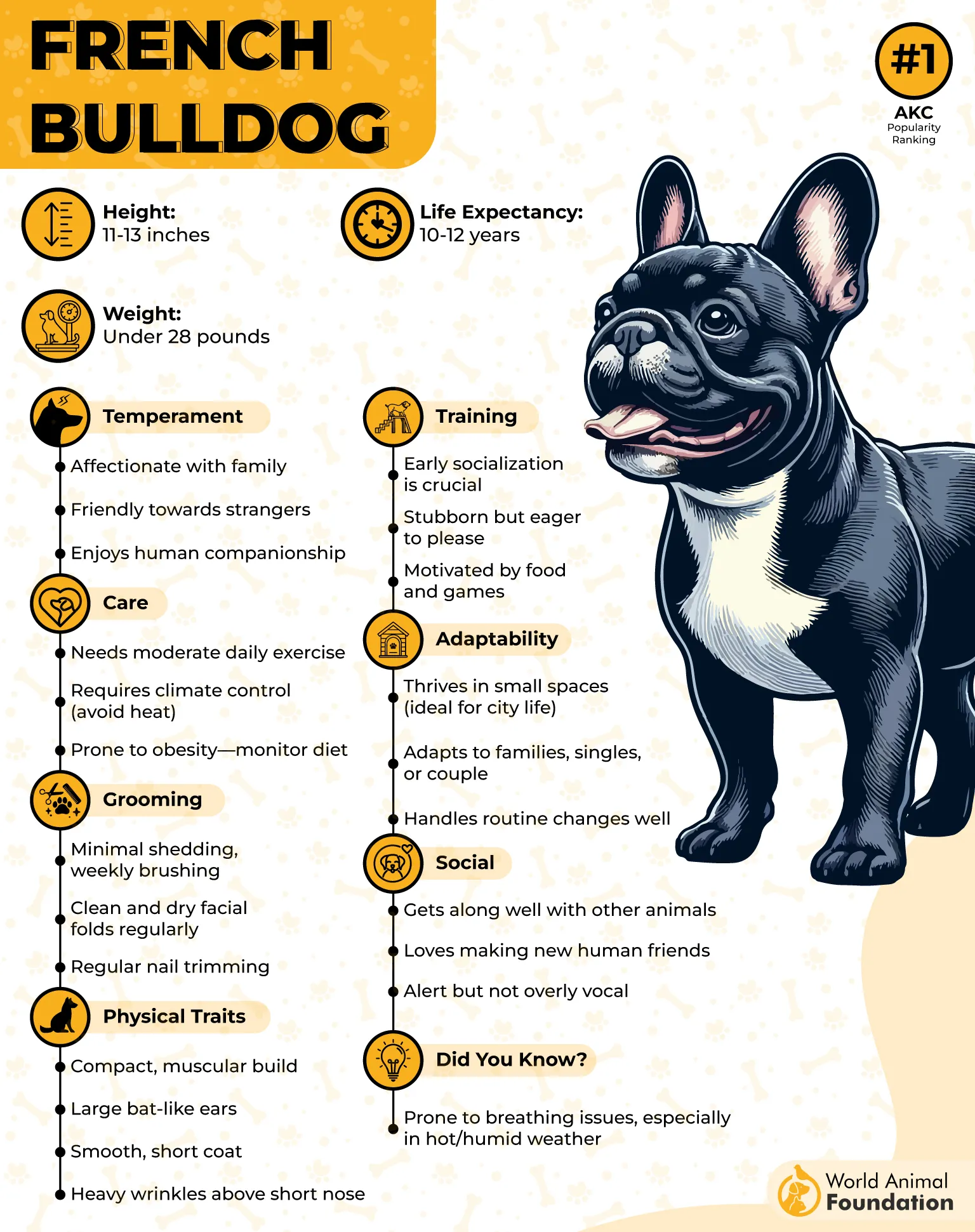
In addition to respiratory issues, French Bulldogs frequently suffer from spinal disorders, particularly intervertebral disc disease (IVDD). Their short, compact build puts excessive strain on their spine, increasing the risk of herniated discs and mobility problems. This makes regular vet check-ups and controlled physical activity essential for their well-being.
Skin conditions are another common concern in flat-faced breeds due to their deep facial wrinkles and sensitive skin. These folds trap moisture and bacteria, leading to infections, irritation, and conditions like atopic dermatitis, requiring consistent cleaning and skincare.
French Bulldogs are also prone to eye problems such as cherry eye, corneal ulcers, and dry eye syndrome. Their prominent eyes make them vulnerable to injuries and infections, making routine eye care a necessary part of their maintenance.
Despite their health challenges, French Bulldogs remain affectionate and loyal companions. Proper care and regular vet visits can help manage their health risks and ensure they lead a happy, comfortable life.
7. Boston Terrier

Boston Terriers are affectionate and energetic companions, but as brachycephalic dog breeds, they are prone to breathing problems. Their flat-faced dog structure leads to brachycephalic syndrome, causing snoring, wheezing, and difficulty breathing, especially in hot or humid conditions. Proper ventilation and avoiding excessive exercise can help manage this issue.
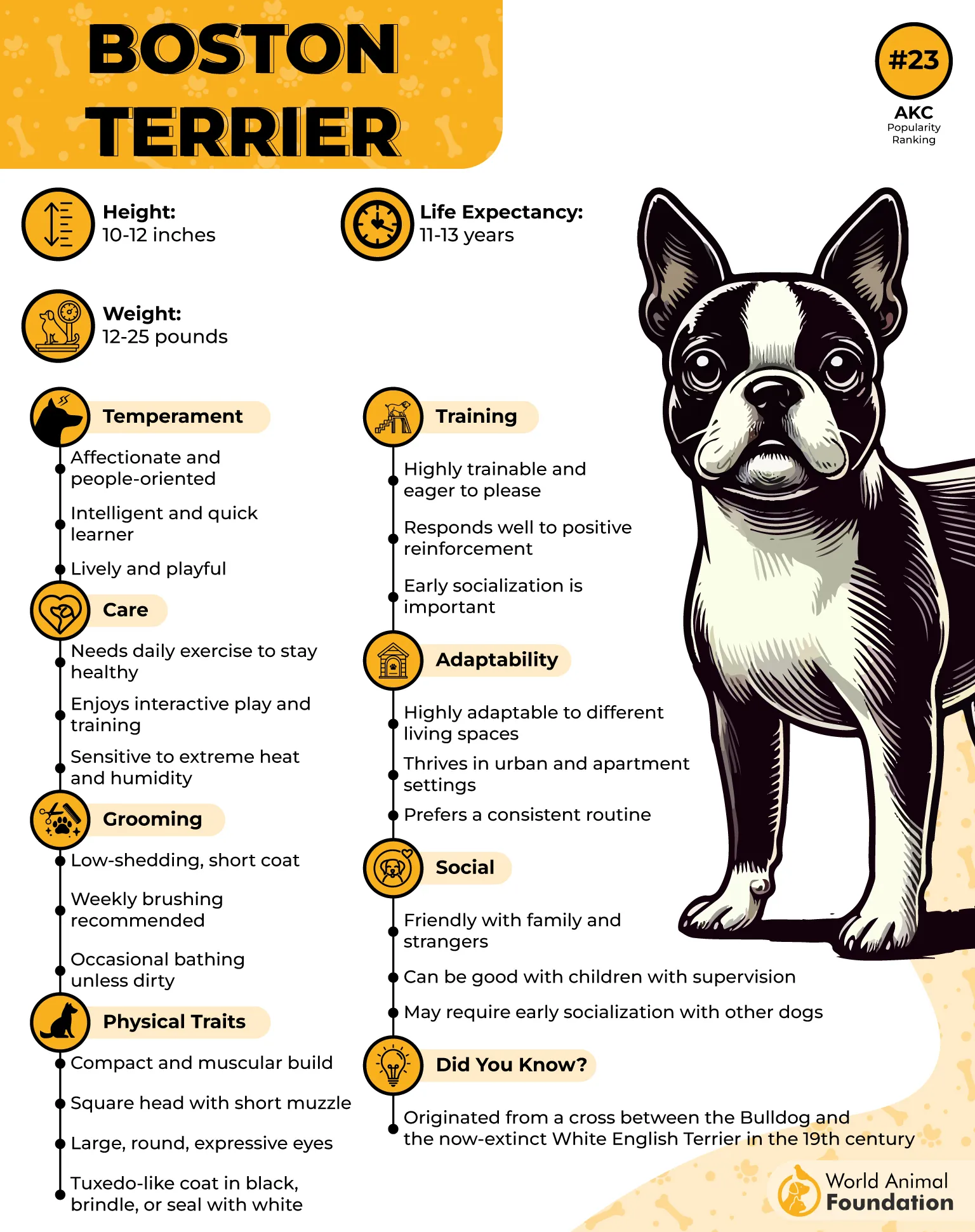
Skin issues are another common concern, as Boston Terriers often suffer from skin allergies. Their short coat provides little protection against environmental irritants, leading to itching, redness, and recurrent infections. Regular grooming and a balanced diet can help minimize allergic reactions.
Dental health is crucial for Boston Terriers, as their compact jaws often crowd dog teeth, increasing the risk of gum disease and tooth decay. Routine brushing and professional cleanings are essential to prevent oral infections affecting their overall health.
Maintaining a healthy weight is vital for Boston Terriers, as excess weight can worsen their breathing difficulties and put a strain on their joints. A well-regulated diet and moderate exercise help keep them in good shape without overexertion.
Despite their health challenges, Boston Terriers are loving and playful pets. They can live happy and comfortable lives with proper care, regular vet visits, and attention to their brachycephalic breeds-related issues.
Conclusion
Caring for illness-prone dog breeds requires awareness and proactive healthcare. While breeds like Golden Retrievers and German Shepherds are beloved companions, they can be susceptible to mast cell tumors and kidney disease.
Similarly, Labrador Retrievers may face joint issues, and senior dogs are at a higher risk of developing chronic illnesses. Even resilient breeds like the Australian Cattle Dog can experience genetic health concerns, while urinary tract infections are common across many dogs. Interestingly, mixed-breed dogs often have fewer hereditary conditions due to genetic diversity.
To ensure your pet’s well-being, investing in the best pet insurance can help cover unexpected medical costs and provide peace of mind. You can give your furry friend a happy, healthy life with proper care, nutrition, and regular vet checkups.


